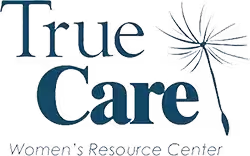Imagine sitting down with a friend for lunch. The two of you are enjoying your time together and the conversation is casual, but then your friend becomes really serious.
“I have to tell you something I’ve never told anyone before.”
“Okay, shoot.”
“Remember that job I had last year at the newspaper? Remember my boss, who I didn’t get along with?”
“Yes”
“Well, he tried to rape me when were on a business trip. I think he fired me because of it.”
“I am so sorry this happened to you! I’m glad that you shared that with me. I have to tell you, this has happened to me too.”
There is something very powerful when someone says to you “Me too!”
Often we keep quiet about traumas in our past. We may not share it with others out of shame, embarrassment, or guilt. Sometimes we fear being judged. We feel alone and are plagued by the thoughts: How could I have let this happen? How could I have been so stupid and careless? Why me? The secret takes on a life of its own, gnawing away at you, preventing you from healing from the trauma. Opening up to a trusted friend can be a great relief. It takes away the power the secret may have over you.
There is a phrase called terminal uniqueness which originated in Alcoholic Anonymous groups. The term means we feel like whatever we are facing is unlike anything endured by other people, like we are the only ones in the world who feels this way. We think no one will understand. Sometimes such feelings can lead to unhealthy habits. We will drink or use drugs or other coping mechanisms to deal with the trauma, but those attempts at easing the pain only buries it deeper. Repressed hurt can creep up later in life when least expected.
The phrase “Me Too” showed up on social media in October of 2017, and immediately went viral. Within 24 hours, the hashtag had been shared more than half a million times on Twitter. The slogan and stories received 12 million Facebook posts. “Me too” has become a mantra to draw attention to the issues of sexual assault and harassment, particularly in the work place. It has empowered women (and men) to come forward and be honest about the assaults and unwanted advances they have experienced.
Maybe you have a “Me Too” experience in your past. We must have courage to be honest and real. Can you share your “Me Too” experience with someone you trust? Don’t let your secret fester in your mind and body. If you are the victim of assault, you can contact your nearest sexual assault agency to find help; in Casper, that is the Self Help Center (307-235-2814). Caring advocates are available there for anyone who has been raped or assaulted. You can also contact the State of Wyoming Victim Services in Cheyenne at 307-777-8952. Help is available for people with a “Me Too” experience.
